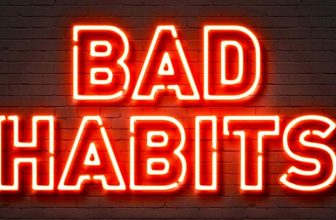
Those struggling through cycles of obsession and compulsion navigate complex landscapes where the lines between disability, normalcy, and health are blurred. Known as obsessive-compulsive disorder or OCD, this condition significantly affects individuals’ daily lives.
As we begin investigating mental illness symptoms in our guide, we will explain the basics of OCD, determine its status as a disability, and offer helpful tips on managing the condition.
What is OCD?
Obsessive-compulsive disorder or OCD is a condition characterized by obsession and compulsion. Symptoms may vary in frequency and intensity; some may experience more of one symptom, while others may show a combination of the two.
Obsessions
The obsessive component of OCD is characterized by distressing, persistent, and intrusive urges, images, and thoughts that occupy an individual’s mind. Some of the most common obsessions are:
Contamination
A person with obsessive-compulsive disorder may have an irrational fear of dirt and germs. They might worry about getting sick or spreading illness to others.
Order and Symmetry
Some with OCD constantly rearrange objects or insist on keeping things in immaculate order. They often become irritable or anxious when things aren’t perfectly symmetrical.
Harm
This obsessive category involves the fear of harming oneself or other people, even involuntarily. Those with harmful obsessions may have life-altering thoughts of violence or accidental injury.
Religion
Some people with OCD have intrusive thoughts connected to their moral or religious beliefs. Such an individual may worry about going against religious principles or committing sinful acts. If an obsession becomes strong enough, it may be classified as a disability.
Compulsions
A compulsion is a repetitive behavior performed in response to an obsession. Compulsions have one purpose: to alleviate discomfort and anxiety caused by obsessions. The most common compulsions include:
Checks
A person with OCD may repeatedly check locks, doors, appliances, and other items to secure them.
Cleaning
Some with this condition use excessive cleaning to eliminate perceived contaminants.
Repeating and Counting
Repeating words or counting objects is a widespread compulsion.
Hoarding
This compulsion involves the excessive collection and preservation of items, even those that are unclean or useless. When combined with obsessions, these compulsive activities can keep an individual from living a normal, healthy life.
Regarding OCD as a Disability
According to the CDC (the Centers for Disease Control and Prevention), disabilities are conditions that make it harder for people to live normally. For obsessive-compulsive disorder to be considered a disability—and for a person to get government benefits—it must be classed as such under the ADA (Americans with Disabilities Act).
The ADA offers legal protections and definitions to and prohibits discrimination against those with disabilities. According to the ADA, a disability is any mental or physical condition that impairs a person’s daily function.
Getting Benefits after an OCD Diagnosis
Those with OCD may be able to get disability benefits if the condition affects their earning capacity. A person with obsessive-compulsive disorder may apply for SSDI (Social Security Disability Insurance) or SSI (Supplemental Security Income) if they meet certain criteria.
To qualify, patients must demonstrate the severity and longevity of their OCD symptoms.
Help is Available
People with OCD often struggle to complete daily activities. The condition has devastating effects on mental health, but help is available. With local resources and effective treatment, individuals with obsessive-compulsive disorder can go on to live healthy, fulfilling lives.









